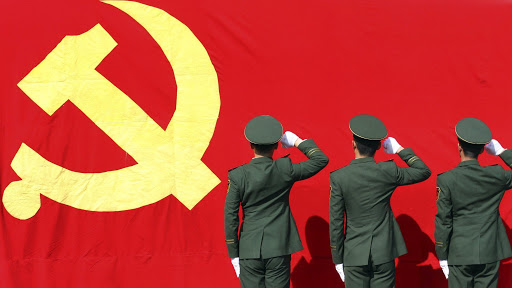On Dec. 2, the State Department issued new restrictions on B1/B2 (visitor for business or leisure) visas for members of the Chinese Communist Party (CCP) and their families. While other Chinese citizens may obtain multiple-entry visas valid for entry within 10 years, under a 2014 reciprocal agreement between Presidents Obama and Xi Jinping, CCP members and their families will be limited to single-entry visas valid for entry within 1 month of issuance. In essence, they will need to apply for a new visa for each planned trip to the U.S., although interviews may be waived for renewal applications.
Technically, the new policy changes the reciprocity schedule for B visas by stating that “B1, B2, and B1/B2 visas for Chinese Communist Party members, their spouses, and children under the age of 21 will be limited to one month, single entry.” (The term “children” refers to unmarried sons and daughters.)
A State Department spokesman said that the new policy will not revoke unexpired 10-year visas currently held by CCP members.
There are some 92 million members of the CCP; counting their family members, perhaps 200 million individuals may potentially be affected by this policy.
Still, the restrictions are more moderate than an outright ban on travel to the United States by party members, which Trump administration officials had discussed this summer.
In a virtual town hall meeting on Dec. 16, Consul General Nancy Abella of the U.S. Consulate General Shenyang stated that no changes are being made to the visa application process. The Form DS-160, Nonimmigrant Visa Application, will not ask whether an applicant is a CCP member or relative of a CCP member. No additional evidence needs to be submitted with the application, she said.
It’s not entirely clear how U.S. consular officers will determine whether the new limit on visa validity will apply to persons who are not high-level Party officials. The CCP does not publish membership lists. Consular officers may ask about membership during interviews. Attempts to conceal Party membership while applying for a visa could be exposing themselves to charges of visa fraud if later discovered.
Also, it’s not clear what the definition of a CCP “member” is. There is a string of U.S. Supreme Court precedents holding that, for purposes of the ban on granting permanent resident status to CCP members, an applicant is not a member if their association with the Party is not voluntary or meaningful. That caselaw is incorporated into the Foreign Affairs Manual, a Department reference manual used by consular officers. Ms. Abella was unable to answer whether the same rules will apply in the context of B visa applications.
At this moment, B1/B2 visa applications have ground to an almost complete halt at the U.S. Embassy Beijing and Consulates in Shenyang, Guangzhou, and Shanghai due COVID-19 and the Trump administration’s travel ban on most persons who have been present in China within the 2 weeks before their visa appointment.
The new State Department policy announcement was accompanied by fiery rhetoric from the Department spokesman, who called the move part of ongoing policy, regulatory, and law-enforcement action across the U.S. government to protect our nation from the CCP’s “malign influence.”
“For decades we allowed the CCP free and unfettered access to U.S. institutions and businesses while these same privileges were never extended freely to U.S. citizens in China,” he added.
Communist Party membership is often a prerequisite for career advancement in Chinese government, most major industries, and academia. Many rank-and-file corporate employees and low-level civil servants are also dues-paying members.
Here are some questions to keep in mind as the State Department implements this new measure:
- Will the incoming Biden administration implement or disavow this policy?
- Will the definition of CCP “member” for purposes of B visa validity exclude persons whose association with the Party is involuntary or nonmeaningful, as does the ground of inadmissibility for person applying for permanent resident status?
- What procedures will the State Department and the U.S. Mission in China put in place to implement this policy. For example:
- Does the State Department plan to add to the Form DS-160, Nonimmigrant Visa Application, questions related to whether the applicant is a CCP member or relative of a CCP member?
- Will consular officers be encouraged to interview applicants regarding whether they are CCP members or relatives of CCP members?
- Will officers be encouraged to request from applicants evidence regarding whether or not they are CCP members or relatives of CCP members?
- If an officer concludes that an applicant is a CCP member or relative, will the applicant be notified and given an opportunity to rebut that?


Leave a Reply